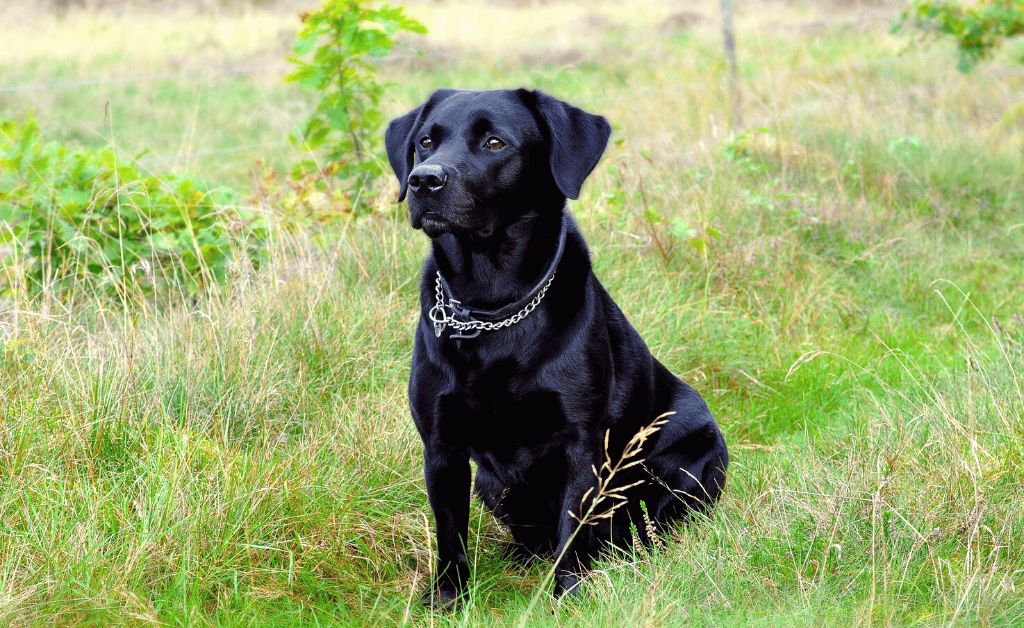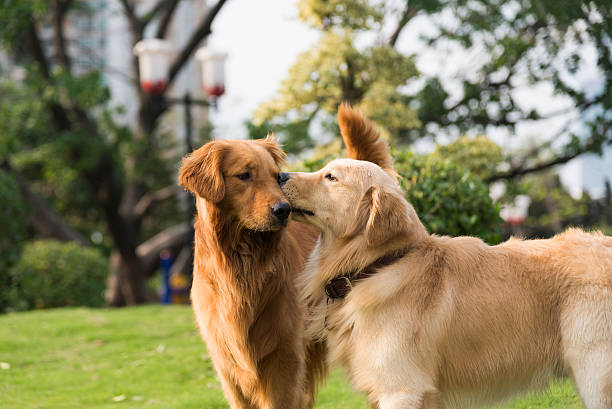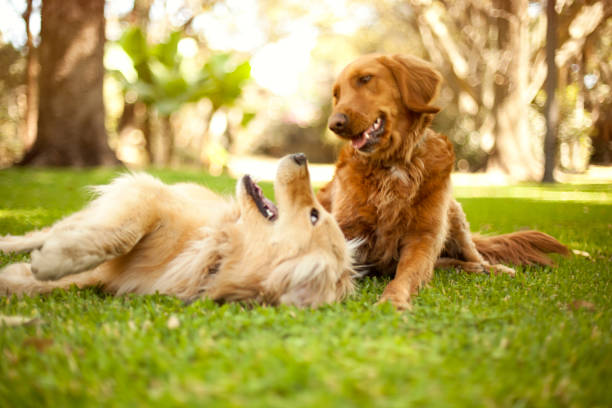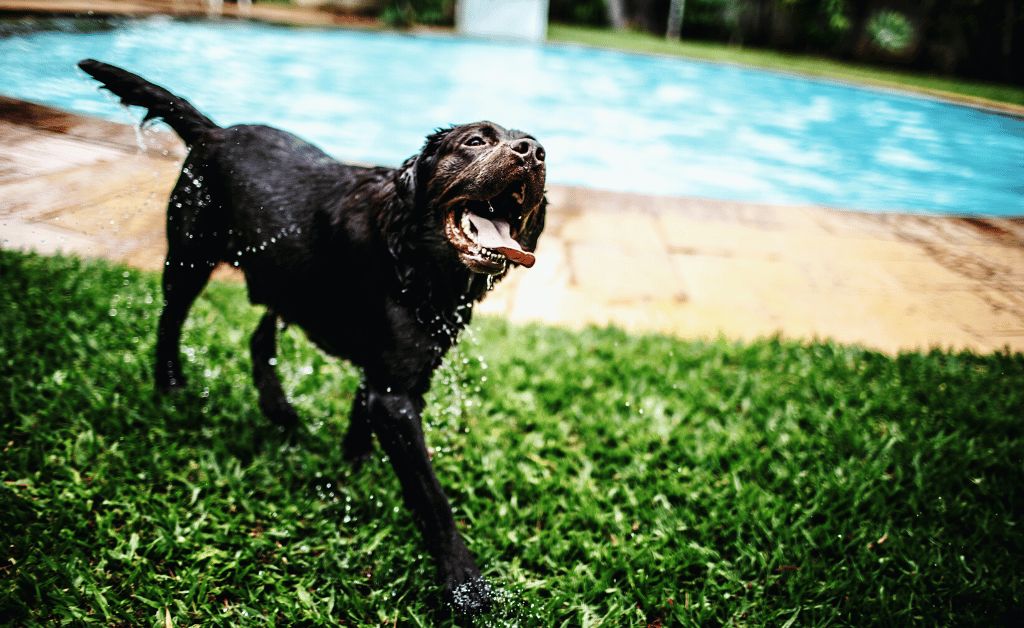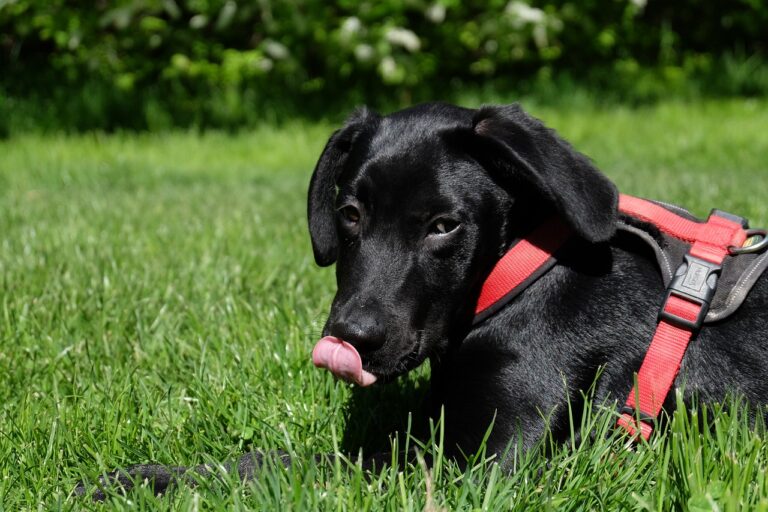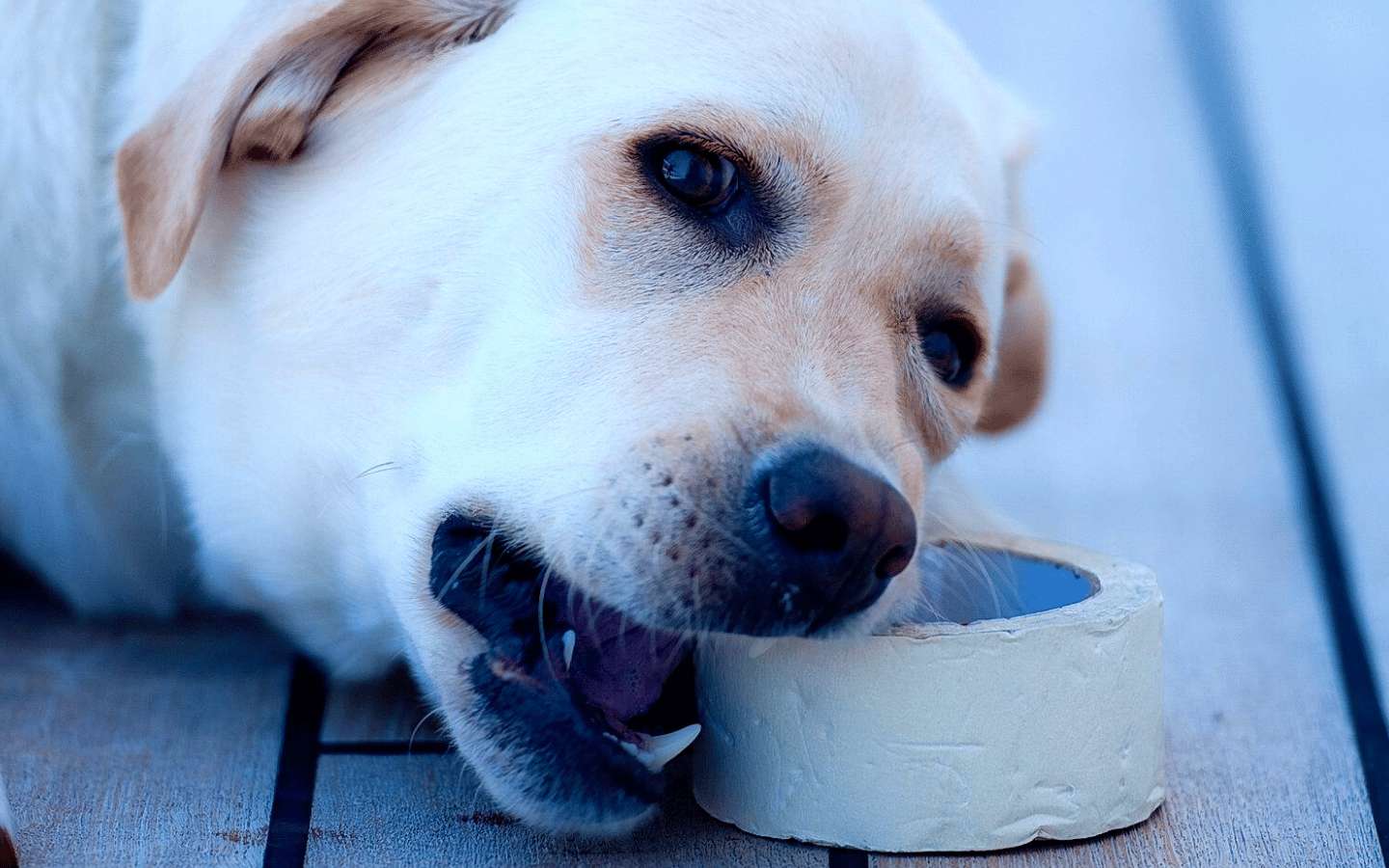Can Labradors Be Aggressive?
Do you have a Labrador Retriever, or are you looking to adopt one? Have you heard about their sweet and gentle nature but wondered if they can be aggressive?
The Labrador Retriever is a breed of dog developed in Britain for purposes including hunting, guard dogs, dog sports, and companionship. Despite their amiable nature and legendary loyalty, large breed dogs might cause concern due to their size and the possibility that they may act aggressively toward smaller pets or even people. Is it possible for Labradors to become violent toward other dogs?
Although there are some aggressive Labrador retrievers, the breed generally has a good reputation for being friendly and calm. Even though it’s possible-every Labrador has their unique personality-highly, it’s rare that a Lab will be hostile against other dogs unless they’re assaulted.
It would be a serious threat if this giant dog breed were violent, but they are generally quite docile and calm. If you own a Labrador retriever and are concerned that your dog may be acting aggressively, you should read on.
Labrador Retriever: Typical Temperament

There are two main roles for labs in society: as police dogs used for detection and screening and as therapy dogs for patients with sensory and cognitive impairments. Because of their reliability, good nature, and want to please, dogs make excellent service animals, companion pets, and military dogs. Many dog experts agree that Labrador retrievers are the most adaptable dog breeds.
We can’t stress enough that Labs are one of the friendliest dog breeds. They are friendly to everyone they meet, even other dogs and children, and their tails never stop wagging. Labs are wonderful companions because they are so devoted to their humans. They’ve won over many hearts and become a fan favorite.
That’s why it’s so common to see them in images where they remain steadfastly attached to their human companions. In a commercial, they are shown as a nice boy or girl saving someone’s life or eating dog food. Amazingly bright and docile, this dog breed requires little time and effort to teach.
As pets, Labrador Retrievers live to entertain their owners and soak up all the love they can. They are very energetic and enthusiastic-a ball of vitality that can also be cuddled.
Labrador Retriever: Possible Causes of Aggression
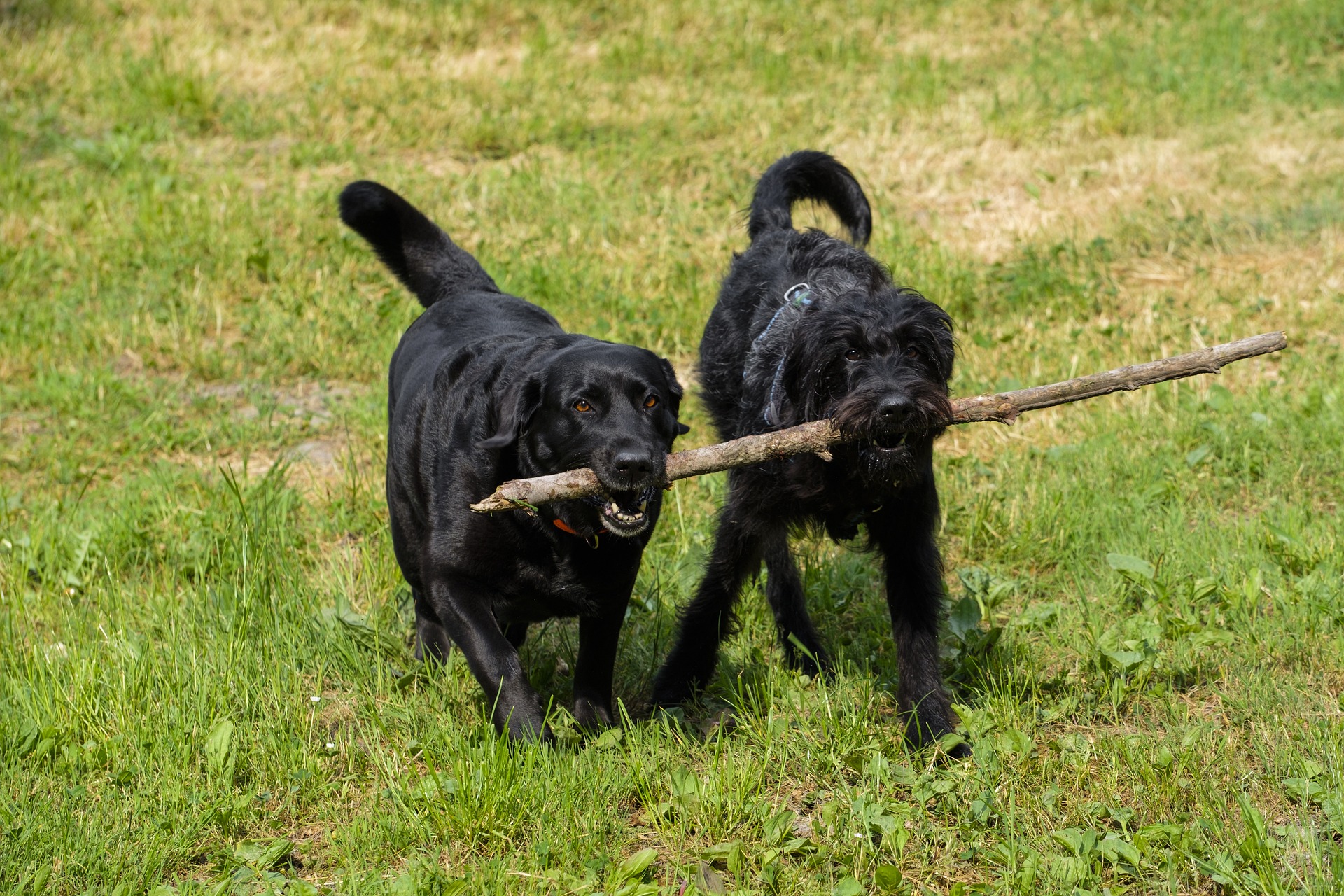
🐕 Unsocialized
Failure to socialize with a Lab early on is the primary risk factor for the dog developing aggression toward other canine companions. Simply put, this means that a Lab that has not been socialized with other dogs or that has not been taught appropriate behavior around other dogs may respond aggressively out of fear or bewilderment. These behaviors are common in Labrador Retrievers that have never lived in a family household.
🐕 Medical Conditions
Unfortunately, your Labrador’s health might sometimes trigger aggressive behavior. Labradors may become aggressive due to medical diseases like thyroid disease and neurological disorders. Canine aggression, such as snarling, howling, and biting, might emerge as a coping mechanism during times of illness.
When a lab has arthritis, the pain can make them act aggressively. Your dog may also exhibit aggressive behavior during this post-seizure period. It’s crucial to call the vet if your normally docile Labrador suddenly starts acting aggressively or if your Labrador develops a new aggressive behavior.
If your Labrador has suddenly become aggressive, it’s important to rule out any medical conditions that could be to blame.
🐕 Protecting Territory
If a Labrador Retriever feels that its territory is being threatened, it may become aggressive to protect what belongs to them. This behavior can be seen when another dog approaches or someone new enters the home or yard. In these situations, the owner needs to stay calm and not yell at or threaten the Lab, as this will only escalate the situation.
🐕 Provoked
If a Lab is provoked, it may become aggressive. Labradors aren’t the type of dog to initiate conflicts with other canines unless they have sufficient reason to do so. This can be anything from a stranger coming too close to the dog to an animal chasing them or someone teasing them.
If your Lab has started fighting with another male dog, the other pet dog was most likely aggressive and provoked your Lab. It’s important to keep an eye out for other dogs and make sure an aggressive dog doesn’t corner your Lab.
🐕 Traumatic Experience
Aggression is more common among rescued dogs because of the terrible experiences they may have had before being rescued. Someone has either abandoned them or mistreated them in some way. They become hostile to protect themselves and their pack.
If you treat your Lab badly, they, too, can become aggressive. Intimidation or physical punishment, such as beating someone, is unacceptable because it could escalate the problem. A harsh response to their snarling or barking, such as a punishment, can simply make the situation worse.
🐕 Frustration
When kids get angry, they yell and hurl things around, while dogs act uniquely. When dogs get angry, they show aggression, just like when people get angry. Several factors contribute to his irritability, including being unable to complete a task he has started, feeling isolated, not having enough friends, and not getting enough physical activity.
It’s important to provide your Lab with the mental stimulation and physical exercise he needs to stay healthy, happy, and relaxed. Puppy classes are also a great way for them to learn appropriate social behaviors and interact with other dogs.
How To Manage An Aggressive Labrador
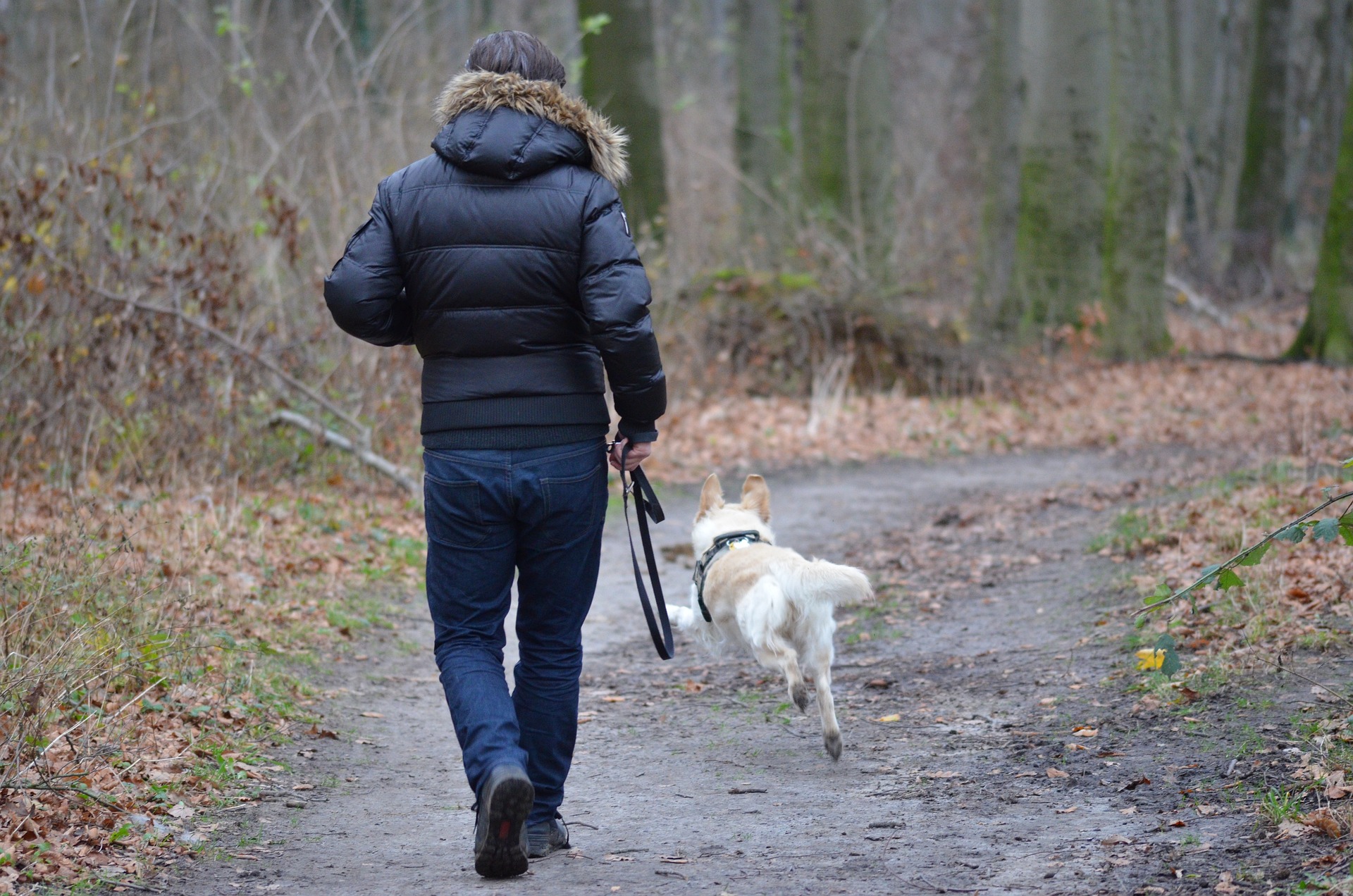
✅ Give Appropriate Rewards
Treats are an efficient method of teaching your Labrador to be gentler and less aggressive. But it doesn’t mean you have to shower them with presents. The next time your dog exhibits calm and friendly behavior, reward them with a tasty snack. Never reward your Labrador when they are acting violently.
They will learn that good behavior is rewarded with treats if they do this. Keep in mind, though, that if you’re planning on treating your Labrador, you should never give them any unhealthy treats.
✅ Be Consistent in Your Training
When it comes to dealing with an aggressive Labrador, consistency is key. You must be consistent and firm in your training so that they know what behavior is acceptable and what isn’t. If they are acting aggressively, calmly remind them of the rules you have set and provide positive reinforcement when they follow them.
✅ Play Games
Not all dogs need physical exercise to channel their excess energy, but those that don’t often resort to aggression. Labradors are high-energy dogs who need regular exercise and playtime.
But there are also some games you should stay away from. Games like tug-of-war can incite aggression in your dog since it teaches them that they must compete for attention and resources.
Instead, play other enjoyable activities such as hide-the-toy or fetch. In most cases, you may take your Labrador into the pool because they adore water. It’s no secret that Labrador retrievers are huge playthings. Playing games with you may make them less likely to attack in the future.
✅ Have a Good Grasp of Your Dog’s Mentality
Although many Labrador retrievers have similar characteristics, they are not all the same. One cannot generalize about dogs. Since your Labrador may be more easily triggered than other dogs, it’s important to figure out what’s making them act so hostile.
For instance, they may act aggressively whenever provoked, such as when they are victims of physical play. Your dog may become less aggressive if you refrain from treating it roughly.
Learning to make your dog more relaxed begins with understanding what sets off its aggressive tendencies. If your Labrador gets angry and starts barking at a squeaky toy, that’s another scenario. This could indicate that the noise is bothering them.
✅ Socialize
Take your Labrador puppy out occasionally to mingle with other dogs and humans. Unsocialized dogs are more likely to exhibit aggressive behavior toward strangers and other animals.
But that doesn’t mean you should force your dog into the company of strangers immediately away. Instead, make it a habit to take them for walks in a neighborhood with lots of other people and dogs. This will give your dog a good example to follow and show them how you want your pet to act.
In addition, you can train your lab puppy to obey commands even while you’re not around. A simple reminder to “sit” or “stay” when necessary serves as a reminder of the need to behave appropriately in public.
✅ Be Patient
It’s important to remain patient and understanding when your Labrador is behaving aggressively. It can take time for them to learn proper behavior, so don’t be too hard on them or give up.
Gently remind them of the rules they have been taught and provide positive reinforcement training. Eventually, they will understand that aggression isn’t acceptable behavior.
When you are patient and understanding with your Labrador, it gives them a sense of security and trust. This will help them feel more comfortable in their environment and less likely to respond aggressively.
✅ Seek Help
If you feel like your dog’s aggressive behavior is becoming too much to handle on your own, seek help from a professional. A certified canine behaviorist or dog trainer can assess the situation and determine the best course of action.
Not all Labradors are aggressive, but it is important to be aware that they can have a tendency to act out. If you take the necessary steps to prevent and address aggression, your Labrador can be a loving and loyal companion.
Frequently Asked Questions
Q: Does a golden retriever and pit bull mix make a good pet?
A: Yes, with proper supervision and training, a golden retriever and pit bull mix can be an excellent family companion. As with all breeds, the key is to socialize the pup from an early age to ensure that they learn appropriate behavior.
Q: What are the colors of the Labrador retriever?
A: The most common colors for a Labrador retriever include black Labrador, chocolate, and yellow Labrador. However, the black lab is the most popular.
Q: How to manage food aggression in my Labrador?
A: In order to manage food aggression in your Labrador, it is important to create a peaceful eating environment. Make sure that no one is around when your dog is eating, and provide them with designated feeding areas, so they know their food is safe from intruders. Additionally, you should never take away their food without giving them an alternative, as this could cause them to become territorial and aggressive.
Q: What is possessive aggression in Labradors?
A: Possessive aggression is when a Labrador becomes possessive over objects, areas, or people. This behavior can manifest as barking, growling, snapping, or biting when someone or something gets too close to their “possessions.” Positive reinforcement training is the best way to address this type of aggression. This will help your Labrador understand that their possessive behavior is not acceptable.
Q: Does fear of aggression in Labradors ever go away?
A: Fear aggression in Labradors is caused by a lack of socialization and trust. With proper training and patience, your Labrador can learn to trust people and be less fearful. Additionally, providing them with a safe environment where they feel comfortable will help reduce their fear of aggression. Taking them on regular walks or to the dog park can also help them build confidence and become more comfortable in new surroundings. With time and effort, you can manage fear and aggression.
Q: What if there are dog bite incidents involving my Labrador?
A: If your Labrador is involved in a dog bite incident, it is important to remain calm and take the necessary steps to ensure everyone’s safety. Contact your local animal control officer and any relevant medical professionals immediately. Additionally, you should consult with a certified canine behaviorist or trainer to identify the root cause of the aggression and take steps to prevent further incidents.
Final Words
In general, Labrador retrievers have a reputation for being friendly and outgoing. It’s possible, though, that your Labrador may still exhibit aggressive behavior occasionally. When this occurs, understanding the potential triggers for aggression in your Lab will help you take the appropriate steps to correct their behavior.
With patience, love, and guidance, you can help your Labrador become a loyal and loving companion. If all else fails, don’t hesitate to seek professional help from a qualified canine behaviorist or trainer. With the right approach, you can eliminate aggressive behaviors in your Labrador with time and dedication.

